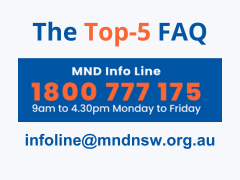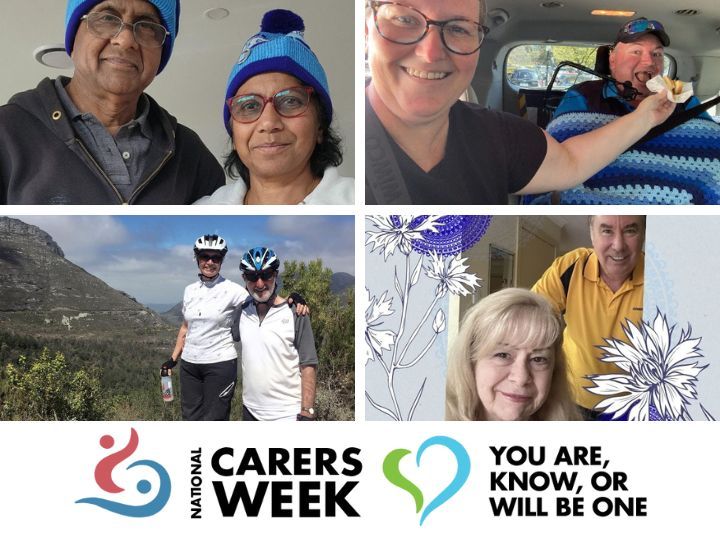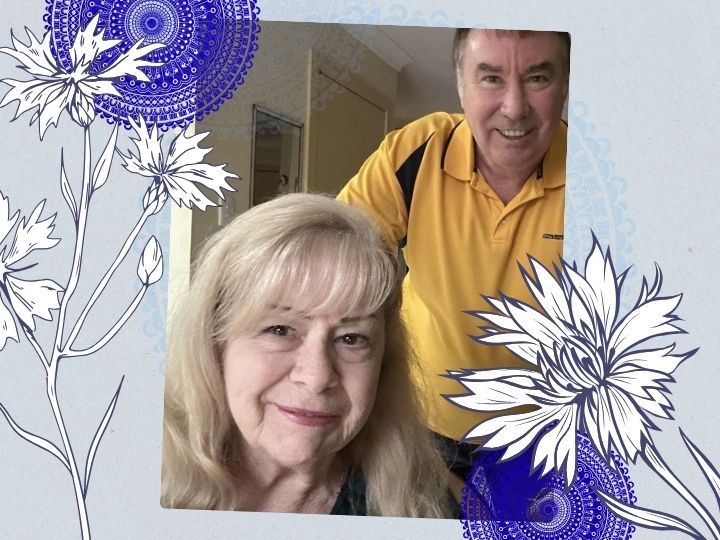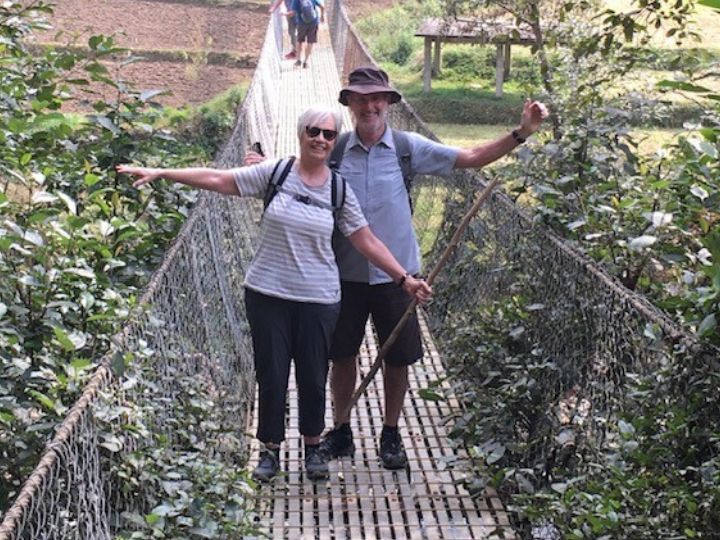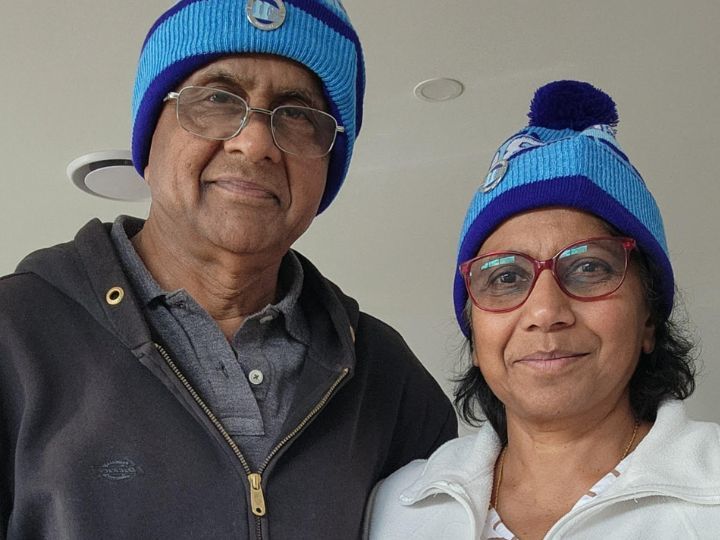Welcome to the first frequently asked questions blog of 2025. MND NSW staff are busy organising and planning for the upcoming 12 months. Keep an eye on the MND NSW Events Page for events in your local area.
1. What are potential early signs of MND?
Early signs and symptoms of MND may include:
- Stumbling and tripping due to leg weakness.
- Difficulty picking up or holding objects.
- Cramps or muscle twitching, known as fasciculations.
- Speech slur or swallowing difficulties.
For more information, visit:
2. What tests may be involved in diagnosing MND?
MND is diagnosed by a neurologist and involves a process of elimination. Tests that are often used to diagnose MND, include:
- Physical Exams.
- Blood Tests.
- Electromyography (EMG).
- Nerve conduction studies (NCS).
- Lumbar Puncture.
- Lung Function tests.
For further information, visit:
3. What are some ways of managing muscle weakness and mobility difficulties?
Managing muscle weakness and mobility difficulties involves several strategies. These include exercise, assistive technology, and environmental modifications, as well as the involvement of allied health professionals such as an occupational therapist and physiotherapist.
Participating in exercise such as strength training, aerobic, and flexibility exercises can help manage weakness and mobility difficulties, reducing the tightening of muscles. Another strategy is gentle massage, which can alleviate joint and muscle pain. It's important to consult with a physiotherapist before starting exercise or massage to ensure it's done safely.
Assistive technology plays a crucial role in managing muscle weakness and mobility challenges. Equipment like walkers, wheelchairs, recliner chairs, hoists, shower stools, and chairs help ensure people with MND and their carers have the necessary support with mobility and transfers. The MND NSW FlexEquip program assists in providing assistive technology to those with MND.
Environmental modifications are also often made to homes to assist with transfers and mobility. These modifications may include grab rails and ramps.
For more information, visit:
4. What emotional and psychological support may be available?
A MND diagnosis can be devasting for the person with MND and their families, often support and strategies will need to be implemented to manage emotions. There are several emotional and psychological support that may be available to someone who has been diagnosed with MND and their families, these include:
- MND Advisor
- MND Carer Program
- Support groups
- Counsellors
- Psychologists
- Social Workers
- Palliative Care Team
- MND Clinic
- Carer Gateway
5. Why am I experiencing fatigue and how can I manage it?
People with MND often experience fatigue due to the following reasons:
- Motor neurones become less effective, making it difficult for them to send commands from the brain to the muscle cells they control. This results in fewer muscle cells receiving the commands, and those that do must work harder to perform the tasks.
- As MND affects breathing muscles, activity can lead to insufficient oxygen supply to the body.
- Some people with MND may have difficulty eating, leading to reduced nutritional intake and lower energy levels.
- Some people experience fatigue as a side effect of the medication Riluzole.
Management strategies for fatigue include:
- An occupational therapist can recommend aids and equipment that help conserve energy and allow you to reserve strength for essential tasks.
- A dietitian or nutritionist can provide advice on maintaining energy levels through a balanced diet.
- Respiratory specialists and physiotherapists can teach breathing techniques and prescribe non-invasive ventilation to help maximise oxygen intake.
- Schedule more intensive tasks for times when your energy levels are higher, such as after a rest or sleep.
- Focus on tasks that are most important to you and leave others for someone else to complete.
For further information, visit:
Ask us a question!
Get in touch with us via 1800 777 175 or
Your question might be in our next month’s Top-5
